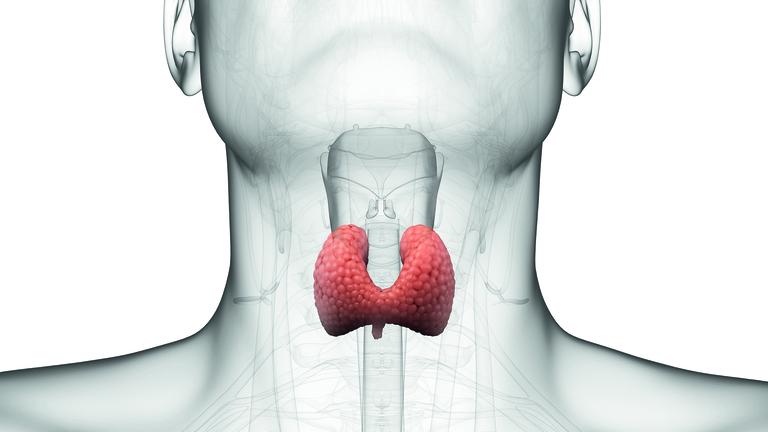The faster you go, the more you will achieve! This rush of getting things done and catching up with the competition has become a part of our everyday lives. With the out-of-control levels of stress, your hormones are bound to get affected. And wait, did you get the news yet that your thyroid glands know when you are stressed? Well, while there is no scientific proof, your stress levels do have an impact on your thyroid condition.
Here, we are going to elaborate on this connection between thyroid and stress along with a few ways you can manage it. You can also stay active on healthcare sites such as Yes Wellness to get the best help.
Though excessive stress alone is not the reason which causes Thyroiditis, it can contribute to aggravating the disorder. The thyroid is an autoimmune disorder which is caused when the body is forced to attack its tissues, in this case, the thyroid glands.
The thyroid gland is an endocrine gland which regulates the metabolism and protein synthesis in the body.
There are two kinds of thyroids: Graves’ disease or Hashimoto’s thyroiditis.
Graves’ Thyroid Disorder causes your thyroid gland to be overactive, also known as Hypothyroidism while the Hashimoto’s Thyroiditis makes it underactive.
Adrenaline Regulation and Thyroid
When you are under stress, the adrenaline glands which are situated above your kidneys release “happy hormones” or Cortisol. Cortisol is quite useful in dealing with small bouts of stress and induces bodily functions to work well.
To handle excessive stress more and more amount of cortisol is released by the adrenaline gland, hampering the functioning of the thyroid gland and leading to a hormonal imbalance in the body.
This hormonal imbalance decreases the rate of metabolism in the body. This is one way we can explain the link between stress and weight gain also. Triiodothyronine (T3) and thyroxine (T4) are two hormones released by the thyroid gland, the levels of which fall with the slowing down of the thyroid gland. Plus, the conversion of T4 hormone into T3 is hampered, leaving your body with a higher composition of reverse T3.
Hypothyroidism also causes issues such as insulin resistance and difficulty in balancing blood sugar. The increase in levels of glucocorticoids in the body lower the levels of THS. This struggle of the body to balance between the stress hormones and cortisol must be met. If this fails, the symptoms of thyroid in the body might increase.
Hence, the increased level of stress leads to a hormone storm in the body which ultimately results in conditions such as Hypothyroidism even if you are not suffering with it.
Thyroid Storm
People who are suffering from Hypothyroidism are notably more sensitive to the hormone release caused by increasing stress. The adrenal hormones such as dopamine and epinephrine can put all the bodily functions in high gear.
Higher the stress, higher will be the level of hormones in a person who is yet to be diagnosed with the Graves’ disease. This hormonal rush can result in overactivity in all bodily functions, ultimately leading to a thyroid storm. In such cases, the patient should immediately be rushed to the Emergency Room.
If a thyroid storm is left untreated, it can result in heart failure, breathing troubles, and may lead to the patient ending up in a coma.
Why is the Impact of Stress on Thyroid Difficult to Detect?
Hormone release caused by stress in the body cannot be measured in numbers. Therefore, the lab tests fail to show the exact reason why your body is suffering from increased anxiety and depression. It takes years for the chronic stress to start showing terrible side-effects, to be diagnosed by the labs.
Managing Stress when you have Thyroid Issues
Talk and be socially active: When you suffer from thyroid disorders, the bodily changes and social anxiety make you prefer isolation. Staying connected to people, discussing what is bothering you, or just jotting everything down in a journal help you beat stress.
Manage your time: Be easy on yourself. Assign yourself the tasks you can do in a day without having to rush and manage your time accordingly. The more sorted you feel with your work, lesser will be your stress levels.
Face life with a positive attitude: There are and will be things and changes which you might not like in the beginning. However, stressing about them is not going to solve anything. So, give yourself a break and accept things as they come your way.
Alter your lifestyle: Add more exercise to your routine, follow a healthy diet, get enough sleep, and bid farewell to smoke, caffeine, and alcohol. These are a few ways in which you will be able to curb the monster that is stress.
There you go! Now that you know that stress can trigger your already affected thyroid glands, you should follow the above tips to keep stress at bay.
